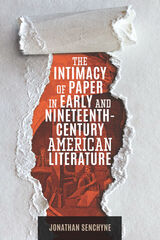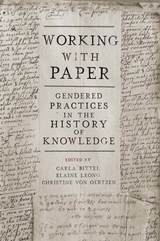3 books about Papermaking

American Paper Mills, 1690–1832
A Directory of the Paper Trade with Notes on Products, Watermarks, Distribution Methods, and Manufacturing Techniques
John Bidwell
Dartmouth College Press, 2013
Unprecedented in size and scope, this directory describes more than 500 paper mills on the basis of census records, archival sources, local histories, and watermark evidence. It traces economic developments and technological changes in the American paper trade from the colonial period to the industrial era, with special reference to its close connections with the printing business, which depended on local sources of supply for newsprint, book paper, and plate paper for engraved illustrations. Newly discovered and reattributed watermarks make it possible to identify these products and provide a more reliable means of dating and localizing works on paper. This fully documented survey of paper mills also contains biographical information about members of the trade and a succinct history of papermaking in America with essays on manufacturing methods, mechanization, business practices, and distribution networks. Among the illustrations in this volume are hitherto unrecorded woodcut and engraved views of manufactories, used in the packaging art of that period.
[more]

The Intimacy of Paper in Early and Nineteenth-Century American Literature
Jonathan Senchyne
University of Massachusetts Press, 2020
The true scale of paper production in America from 1690 through the end of the nineteenth century was staggering, with a range of parties participating in different ways, from farmers growing flax to textile workers weaving cloth and from housewives saving rags to peddlers collecting them. Making a bold case for the importance of printing and paper technology in the study of early American literature, Jonathan Senchyne presents archival evidence of the effects of this very visible process on American writers, such as Anne Bradstreet, Herman Melville, Lydia Sigourney, William Wells Brown, and other lesser-known figures.
The Intimacy of Paper in Early and Nineteenth-Century American Literature reveals that book history and literary studies are mutually constitutive and proposes a new literary periodization based on materiality and paper production. In unpacking this history and connecting it to cultural and literary representations, Senchyne also explores how the textuality of paper has been used to make social and political claims about gender, labor, and race.
The Intimacy of Paper in Early and Nineteenth-Century American Literature reveals that book history and literary studies are mutually constitutive and proposes a new literary periodization based on materiality and paper production. In unpacking this history and connecting it to cultural and literary representations, Senchyne also explores how the textuality of paper has been used to make social and political claims about gender, labor, and race.
[more]

Working with Paper
Gendered Practices in the History of Knowledge
Carla Bittel, Elaine Leong, Christine von Oertzen
University of Pittsburgh Press, 2019
Working with Paper builds on a growing interest in the materials of science by exploring the gendered uses and meanings of paper tools and technologies, considering how notions of gender impacted paper practices and in turn how paper may have structured knowledge about gender. Through a series of dynamic investigations covering Europe and North America and spanning the early modern period to the twentieth century, this volume breaks new ground by examining material histories of paper and the gendered worlds that made them. Contributors explore diverse uses of paper—from healing to phrenological analysis to model making to data processing—which often occurred in highly gendered, yet seemingly divergent spaces, such as laboratories and kitchens, court rooms and boutiques, ladies’ chambers and artisanal workshops, foundling houses and colonial hospitals, and college gymnasiums and state office buildings. Together, they reveal how notions of masculinity and femininity became embedded in and expressed through the materials of daily life. Working with Paper uncovers the intricate negotiations of power and difference underlying epistemic practices, forging a material history of knowledge in which quotidian and scholarly practices are intimately linked.
[more]
READERS
Browse our collection.
PUBLISHERS
See BiblioVault's publisher services.
STUDENT SERVICES
Files for college accessibility offices.
UChicago Accessibility Resources
home | accessibility | search | about | contact us
BiblioVault ® 2001 - 2024
The University of Chicago Press









